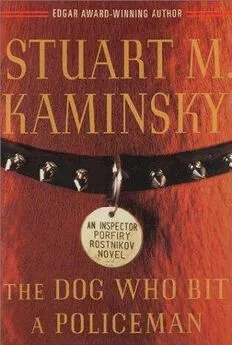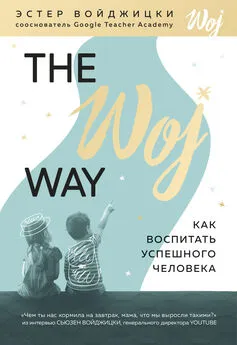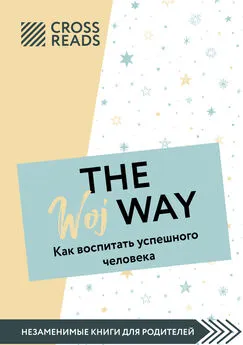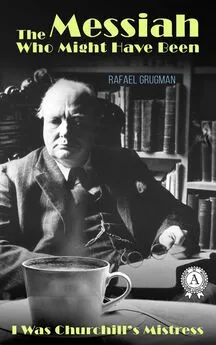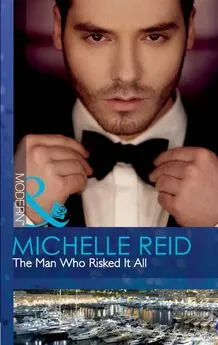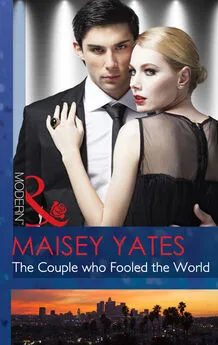Stuart Kaminsky - The Dog Who Bit a Policeman
- Название:The Dog Who Bit a Policeman
- Автор:
- Жанр:
- Издательство:неизвестно
- Год:неизвестен
- ISBN:нет данных
- Рейтинг:
- Избранное:Добавить в избранное
-
Отзывы:
-
Ваша оценка:
Stuart Kaminsky - The Dog Who Bit a Policeman краткое содержание
The Dog Who Bit a Policeman - читать онлайн бесплатно полную версию (весь текст целиком)
Интервал:
Закладка:
“Yes,” said Sasha. “I’d like, however, for my dog trainer to be here.”
“Too late,” said the rugged man, shaking his head. “We expect a good fight from your animal. We want to see the quality of what your enterprise can produce.”
Sasha avoided looking at Nimitsov, who had told him that Tchaikovsky must, in fact, lose. Sasha had no idea how to accomplish such a thing, even if he were willing to do so. Peter Nimitsov seemed to be about to betray either the three men or Sasha.
“All right,” said Sasha, rising. “Then I should like to prepare my dog.”
“Certainly,” the rugged man said, rising. “Do not take too long.
They will be waiting for us at the arena.”
Peter Nimitsov rose slowly.
The two older men remained seated.
The situation did not seem particularly dangerous for the present. He would try, however, to find a phone, to call Maya, but he would have to do so carefully. Rostnikov and others would be at the arena tonight. It would be over now that Sasha could identify the three Frenchmen, who would not have the opportunity to kill Sasha and Nimitsov.
What Sasha Tkach did not know was that Tchaikovsky would be fighting in a different arena tonight.
Viktor Shatalov would no longer have to worry about being called Irving by the Tatars. Viktor Shatalov would no longer be eating pizza and telling jokes. Viktor Shatalov lay dead in Fish Lane almost in front of the Old Shopping Arcade and across from the New Shopping Arcade, which was one hundred fifty years old and had replaced the original fish market.
Two of Shatalov’s men lay dead nearby. All three bodies were violated by many gunshot wounds.
A police ambulance was just arriving, its annoying horn signal-ing an urgency that did not exist.
“He liked to come here for blinis, ” said Emil Karpo, looking down at the bodies.
“If you knew that, others knew that,” said Rostnikov, looking at the remarkably small crowd of the frightened and curious, mostly shopkeepers who had come out of their stalls to witness death.
The curious wore everything from suits to white aprons and loose-fitting dresses. There were even a few children in the crowd.
“Others certainly knew it,” said Karpo.
“No one else hurt?” asked Rostnikov.
Two men came out of the ambulance. They were dressed in white and wore the businesslike look of those who touch death daily. They moved around Rostnikov and Karpo, knelt at each body to be sure that all signs of life had departed.
Shatalov’s face showed silent, final pain, and blood dripped from the hole directly over his right eye. Both eyes were open. One could mistakenly think the look of pain was a smile. One of the other corpses was curled in a fetal ball, trying to protect himself. The third dead man had been very young. He lay on his back with his arms spread as if taking in the sun on the beach at Yalta. This third dead man bore a striking resemblance to Shatalov.
“His son,” said Karpo, watching Porfiry Petrovich as he looked down at the young dead man being checked by one of the medics.
“Witnesses?” asked Porfiry Petrovich, smelling an aroma of bakery coming from inside the New Market. It smelled remarkably good and he considered going in to find out, after he was finished in the street.
“Raisa Munyakinova has succeeded,” said Rostnikov. “The war has begun. You are, however, not displeased, Emil Karpo.”
“Murder is a crime against the state,” said Karpo.
“And the victims,” added Porfiry Petrovich. “But you are not displeased at the prospect of the Mafias dwindling their numbers.”
“You know that to be the case, Chief Inspector,” said Karpo, taking notes. “However, it will not diminish my commitment to finding whoever did this.”
“And we have a good idea of who that might be,” said Rostnikov. “Witnesses?”
“Two,” said Karpo. “A boy and an old man. Do you wish to talk to them?”
“Yes,” said Rostnikov. “Inside. Bring them. Follow that smell.
Don’t bother to call Paulinin on this one. He will consider it beneath his talents. A simple gangster assassination. There is little challenge. Call the pathology office.”
Karpo closed his notebook and nodded. As Porfiry Petrovich entered the market, Karpo motioned to a slightly overweight police officer whose cap was so tight it had turned his forehead pink.
“You remain here,” Karpo said. “No one touches the bodies or approaches but the ambulance men and forensics.”
The man with the pink forehead nodded and stood at near attention over Shatalov’s corpse.
“Can we take them now?” asked the older of the two medics.
“Wait for forensics,” said Karpo.
“They take forever,” said the driver with a look of disgust. “People are dying every ten minutes in Moscow. We run, eat bread and cheese while we drive, and it gets worse. Can we go and come back?”
“No,” said Karpo.
The medic was about to protest, but he looked at Emil Karpo and tried not to shudder at the intensity of his stare.
“We’ll wait,” said the driver. “Maybe a little break won’t hurt us.
But if we get in trouble, we will say that you ordered us to remain here.”
Karpo turned his back on the medics.
The two witnesses were standing apart from the small crowd.
The boy was very thin and no more than twelve. The man was almost as thin and certainly no younger than eighty. It was a puzzle to Karpo that in a country where the life expectancy was sixty years, the streets were filled with men and women in their seventies and eighties.
The market was reasonably busy in spite of the crowd outside.
Karpo, the boy, and the man walked slowly past sights and smells of food. The strongest smell came from the busy fish stalls, where the fish were generally big and probably beginning to turn.
Karpo followed the sweet smell of baking that could not be sup-pressed by the other odors. He found Rostnikov sitting on a low wooden fence behind a pastry stall, a brown paper wrapping open on his lap before him and four triangular baked objects the size of an adult hand laid out on the paper. The low wooden fence appeared to be in serious danger of collapse under the chief inspector’s weight.
“Take one,” said Rostnikov, looking at the witnesses.
The old man took the gift eagerly. The boy took another, but cautiously. He knew there was always a price to pay. The old man knew too but was beyond caring.
“I can’t offer you a seat,” said Rostnikov, selecting one of the last two triangles, “but I will try to be brief. Inspector Karpo, I bought one for you.”
“No, thank you, Chief Inspector,” Karpo said.
Rostnikov wrapped the final triangle and put it in his pocket.
“Now, gentlemen, are you related?”
The boy and old man shook their heads.
“These are good, aren’t they?” Rostnikov said after his first bite.
“Yes,” said the boy.
The old man nodded in agreement. Both the witnesses now had dots of white sugar and flakes of light-brown crust on their faces.
“I think they are Armenian,” said Rostnikov seriously, examining the pastry that was no longer a triangle.
“Armenian?” said the old man. “No, I am Russian.”
“I mean the pastry,” said Rostnikov.
“Oh, Armenian, yes,” said the old man, taking a bite and tearing the pastry with his few remaining teeth.
The boy’s clothes were clean but shabby. The old man’s baggy pants and oversize sweater were clearly flea-market items. Both man and boy had eager looks on their faces, anticipation tinged with caution. This was a high point in each of their lives.
Rostnikov knew he should interview them individually, but there was little chance, almost no chance that either of them would ever appear in court as witnesses in a Mafia shooting regardless of what they might have seen. The courage of the old man would fade quickly if it became known that he could identify anyone. And Rostnikov knew better than to even consider putting the boy before a judge. It would be an assurance of the boy’s death. But Rostnikov could, possibly, use information they might give him.
“What did you see?” asked Rostnikov, taking another bite. He could taste honey, yoghurt, sugar beneath the flaky brown crust.
The old man spoke first. It was hard to understand him because his mouth was full of pastry. “I was going to get food for my dog,”
the old man said. “Do not go near him if you should meet. He has grown old and sometimes bites strangers.”
“I will avoid him,” Rostnikov assured the old man. “I doubt if he could provide any information that might help in this case.”
“I was going to get food for my dog,” the old man continued.
“Three men got out of a car. They started to walk to the market.
Another car came. The windows were open. Shooting, shooting, shooting. Glass breaking. Stones from the market wall exploding like in a movie. Then the car that the three men had come out of chased after the car the shooting had come from.”
“You see any of the men in the car with the shooters?” asked Rostnikov.
“No, too fast.”
“Can you tell us anything about the car?”
“Big, black, maybe American, maybe German, not Russian.”
“Anything else you can tell us?”
“I have to get home to my dog with some food. His name is Gagarin. I was almost a cosmonaut. I was a pilot in the real war, killed many Germans, many Germans.”
Rostnikov did not doubt it. Neither did he believe. Anyone the age of this man had no choice but to fight against the Germans.
Rostnikov, as a very young boy, had been a soldier. It was in the process of destroying a German tank that Rostnikov had suffered the wound that eventually led to the loss of his left leg.
“Give your name and address to Inspector Karpo. We will come to you if we need to talk to you again.”
“You think my dog would eat some of this sweet?”
“It is worth the attempt,” said Rostnikov.
“My dog bites. If you come to see me, be careful.”
“I was bitten by a dog yesterday,” said Rostnikov.
“You were?” said the old man. “Are you all right?”
“He bit my plastic leg,” said Rostnikov.
“That was fortunate,” said the old man, moving to Karpo, who took several steps back.
“And what did you see?” Rostnikov asked the boy.
“You really have a plastic leg?”
Rostnikov reached down and pulled up his pant leg to reveal his prosthetic leg. The boy examined it, taking another bite of pastry.
He nodded to indicate that he had seen enough of the leg.
“And a dog really bit you?”
Rostnikov smiled and lifted his pant leg again and pointed to the teeth marks in the plastic.
The boy nodded again.
“What did you see?” Rostnikov repeated.
“The men in the black car fired many times, like the old one said. It looked like the men who were shot were dancing to the music of the guns.”
“You are a poet,” said Rostnikov, smiling at the boy, who nodded.
“No money, poets don’t make money,” said the boy. “I want to be a policeman like you. Policemen make lots of money.”
“We do?”
“Bribes, payoffs, everyone knows,” said the boy.
There was enough truth in the statement that Rostnikov ignored the boy’s observation and said, “How close were you when the shooting began?”
“I was right next to the three men who died.”
“You are lucky to be alive,” said Rostnikov.
The boy shrugged and finished off the pastry, licking the residue of sweetness from his fingers.
Читать дальшеИнтервал:
Закладка:
